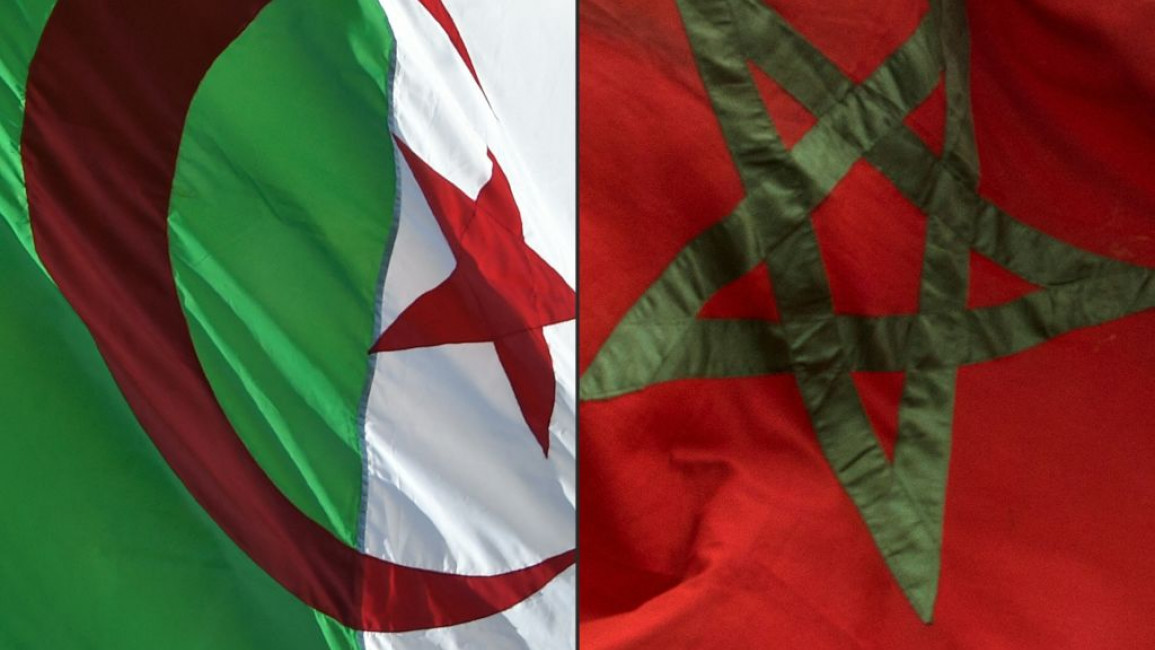Are Algeria and Morocco really ready to mend ties?
In the Moroccan border town of Oujda, Khadija, a Moroccan woman, stands among dozens of people, waving fervently towards their loved ones on the opposite side of the fence—the Algerian border.
This scene unfolds as part of a daily ritual in Morocco's Oujda and Algeria's Meghnia, a testament to the enduring bond between these two peoples, who speak with similar accents, dance to the same music, and, in several cases, belong to the same families. They hope one day for the eventual reopening of the Zouj Bghal borders dividing the two countries.
Since 2021, Algeria and Morocco have been in a diplomatic standoff despite the Moroccan monarch's continuous calls for reconciliation and dialogue.
However, a recent interview with Algerian President Abdelmadjid Tebboune, in which he addresses Rabat as a neighbour, has sparked hope among the Algerian and Moroccan people to end the crisis.
"Hopefully, this will end soon. I miss my family there. I haven't seen them for two years since they stopped the (direct) flights," said Khadija, who has been coming to the borders regularly and eventually leaving in tears "because I feel helpless," she added.
On 31 March, Tebboune appeared in a lengthy interview with a local state channel as part of a campaign to increase his media presence before the upcoming presidential elections. He has yet to announce his official candidacy for a second mandate.
Here are the statements made by Algeria's president that instilled hope among the two populations.
'No more Arab division'
When asked about the issue of Western Sahara, President Tebboune declined to discuss it, stating that he does not want to shuffle further into "Arab division."
This response is unusual from an Algerian official, considering the state's vocal support for the Polisario Front, a movement advocating for the territory's independence from Morocco.
Once Morocco seized the bulk of Western Sahara in the 1970s, Algeria began providing military support to the Polisario Front and allowed its leaders, as well as many Saharawi refugees, to establish themselves on Algerian territory.
Since then, Algeria has consistently supported Polisario's demands, further fracturing its ties with Rabat.
A new union in the Maghreb
Tebboune also vows to replace the Maghreb Arab Union (UMA), a failing regional unity project based in Rabat, with a new one that has yet to be named.
In early March, Algeria, Tunisia, and Libya met in Algiers to discuss the feasibility of their project. Nevertheless, Tebboune stressed that other UMA members, like Morocco and Mauritania, are welcome to join the new bloc.
"There is an agreement to create an entity, not against one of the countries of the Arab Maghreb Union. We will try to unite and coordinate on certain subjects," he said during the interview.
The UMA, which brings together five North African countries, has been paralyzed for years mainly by political discord among its members. Founded in 1958, the union represents a market of over 100 million consumers.
"Our approach is motivated by the existing void at the regional level," added the Algerian president, speaking about the new regional bloc.
While these hints may signal the beginning of a new friendship, some analysts argue that they might be just another false hope for the two states' long-awaited reconciliation.
"The two states are unlikely to change their diplomatic strategies over the next few years," Professor Said Saddiki told The New Arab, arguing that Algeria and Morocco are competing for regional leadership today.
Since their independence, Algiers and Rabat have been on a continuous diplomatic standoff, with border closures and envoys being recalled whenever tensions mount.
For Saddiki, the only way for the regional leaders to end their decades-long vendetta is to find "compatible ways of dialogue and to navigate wisely the historically charged disputes." However, this dialogue has yet to take place between the leaders of the two neighbouring states.



